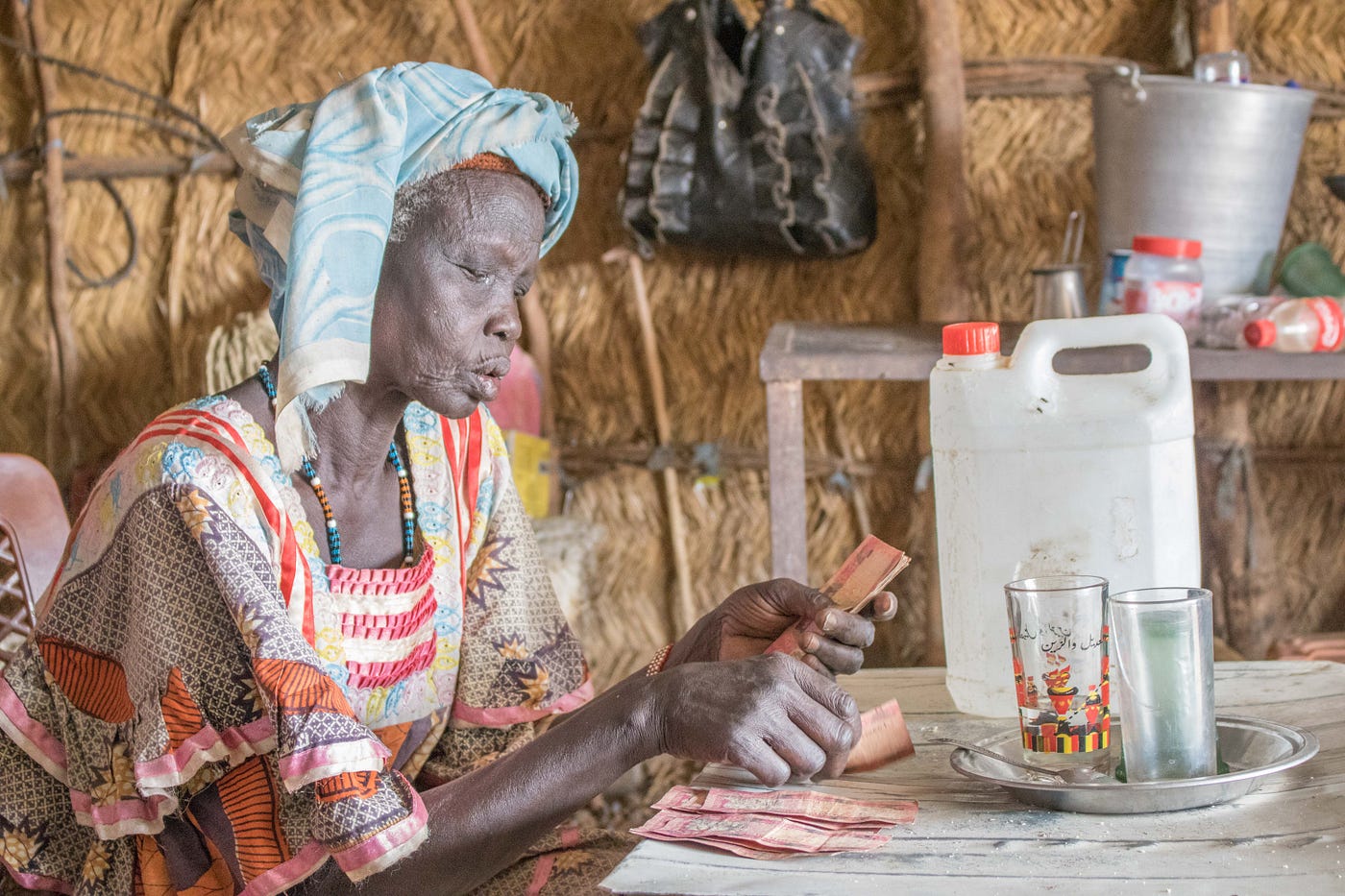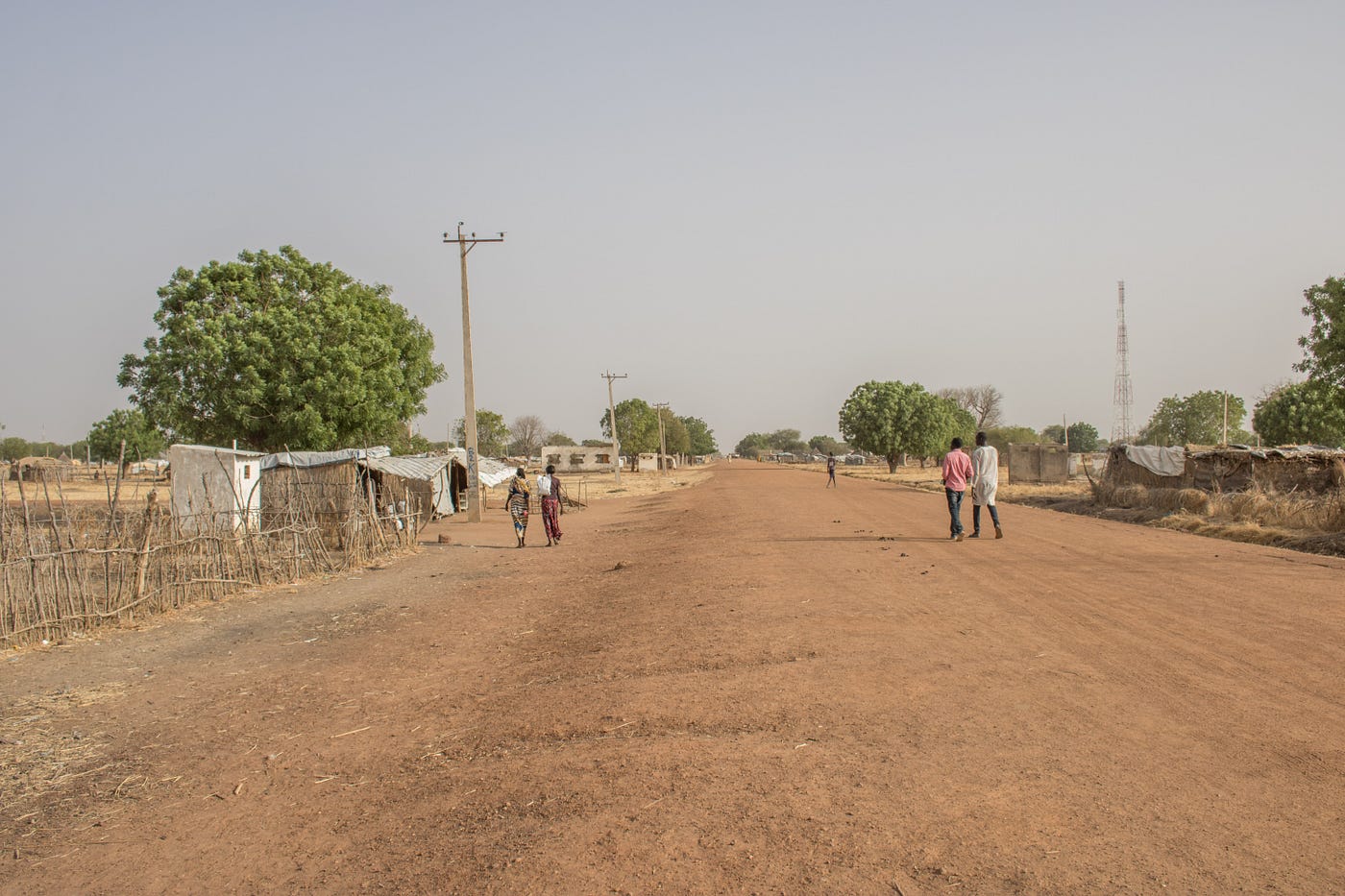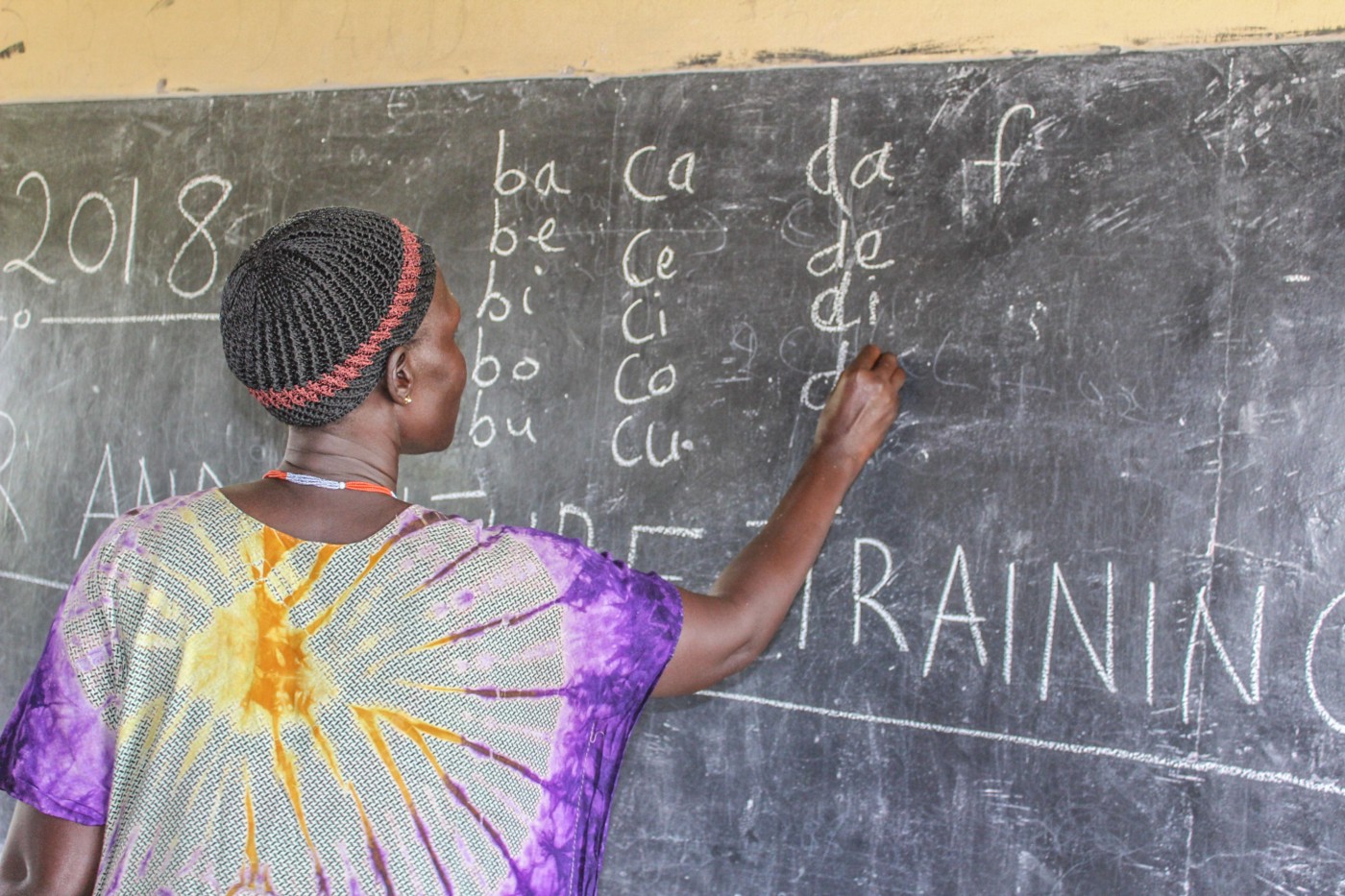A majority of the population in South Sudan are illiterate — some 73 per cent in 2009.
In the Abyei Administrative Area, most women have not had access to an education or, if they did, would often drop out of school at a primary level due to early marriage and pregnancy.
“My father pulled me out of school in primary two so that I could take care of my sisters and brothers. I stayed home and helped to take care of my siblings. I then got married and now I have five children,” explained Nyanhar, a woman living in Abyei.

Violent attacks on Abyei — a disputed territory between Sudan and South Sudan — in 2008 and 2011, including bombing, led to massive displacement and further destroyed education opportunities, particularly for women.
Access to English-language education is even scarcer, greatly reducing women’s opportunities for economic and social advancement. Without English skills, women in Abyei are effectively left out of decision-making such as community peace committees, peace talks, traditional courts and councils of elders. Women are at a disadvantage when seeking jobs, particularly with international organizations that require a level of literacy most do not have.

While some women have had access to basic education, they may have studied only Arabic, which makes it difficult for them to engage meaningfully in a context where English is rapidly becoming the crucial medium for business. Often, when women seek to establish small businesses, they find that their businesses quickly collapse if they lack the ability to count and record transactions.
In February 2018, after women’s groups in Abyei expressed a need for English-language learning earlier this year, the International Organization for Migration (IOM) began a Functional Adult Literacy programme with the support of the U.S. Agency for International Development (USAID).
FAL differs from regular English literacy courses in that it is tailored to meet the needs identified by the students themselves. Through community consultations and listening surveys, the women identified reading, writing and numeracy as priorities. This allowed IOM and its partner to devise courses in such a way that the students could benefit immediately upon completing the course.

IOM and Rayons Consult, a consultancy group registered in South Sudan, developed the curriculum based on the students’ needs and began teaching in April 2018 at seven learning centres across Abyei. Over 314 students — 292 women and 22 men — graduated from the course in August 2018.
“Learners in this programme participated with specific goals they dedicated themselves to which explains why they were able to attend classes despite floods. The women displayed high levels of commitment even in the way they engaged in learning, and a willingness to try new skills that were being taught,” said Saava Ali Bunyenyezi, FAL instructor with Rayons Consult.
After completing their lessons, the students expressed a sense of empowerment and hope about improving their well being with their new skills.

“I had a small business before, but because I could not record my profits and count my losses, the business collapsed. But now it is different, I am baking doughnuts and cake, which I take to the market to be sold. And through FAL, I now do my book balance by counting the money I spent in buying ingredients, then I count against the number of cakes and doughnuts sold and then I am able to see my profit or loss — all of which was not happening before FAL,” said Aluel, a baker, council member of the women union and FAL student at the Agok Episcopal Church of Sudan (ECS) primary school learning centre.
Another student, Awal, said it would even reduce challenges she faces as a mother:
“I had always wanted to know how to write my name, my father’s name as well as my mother’s. And when I delivered my children, I faced an even bigger problem: This is because when they fell ill, I took them to hospital, but I could not read what the doctor had written on my child’s medical card. Doctors do not tell us what is happening to our children, they just examine the children and then give medication. The medication given was also written but I could not read or understand it. Many times, I tried to read but failed. And this created fear in me that my children may be harmed from overdose or under-dose. To protect my children, I began discarding the medication from the hospital and began administering traditional herbs to my children. But since I have now learnt how to read and write, I now read medication for my children and give them as shown on the cover.”

The FAL programme is part of a wider women’s empowerment programme IOM is implementing in Abyei, which was developed following in depth consultations. The programme centres around:
1. Strengthening the capacity of women for peace
2. Building the capacity of women to take part in organizational development and leadership
3. Technical support to women to develop Abyei women’s strategy
4. Training women with certain skills, who will train more women
5. Supporting women to establish small businesses
6. Bridging the gaps between Ngok Dinka and Misseriya women (two main communities in Abyei)
7. Advocating for the inclusion of women in decision making processes as well as gender protection


